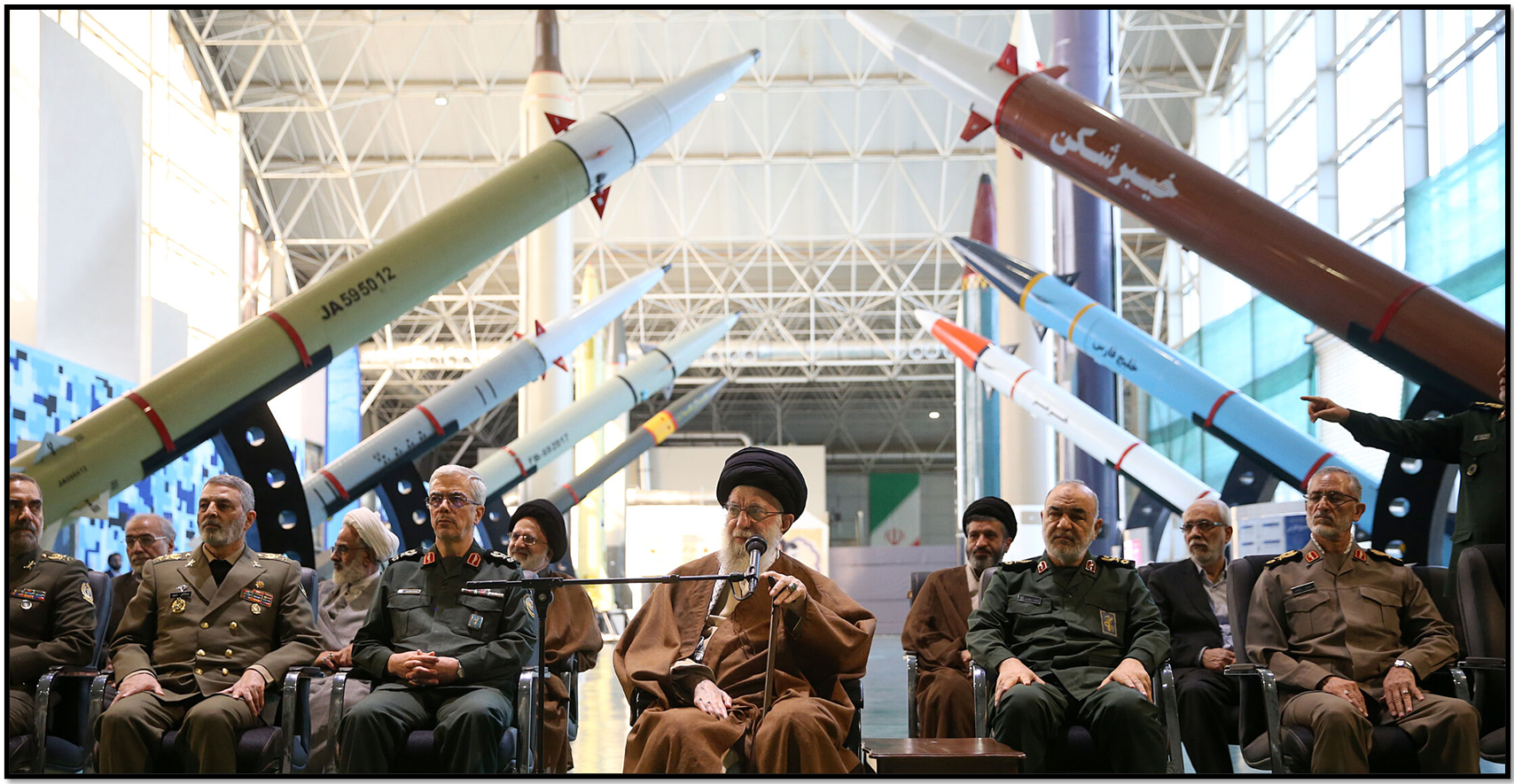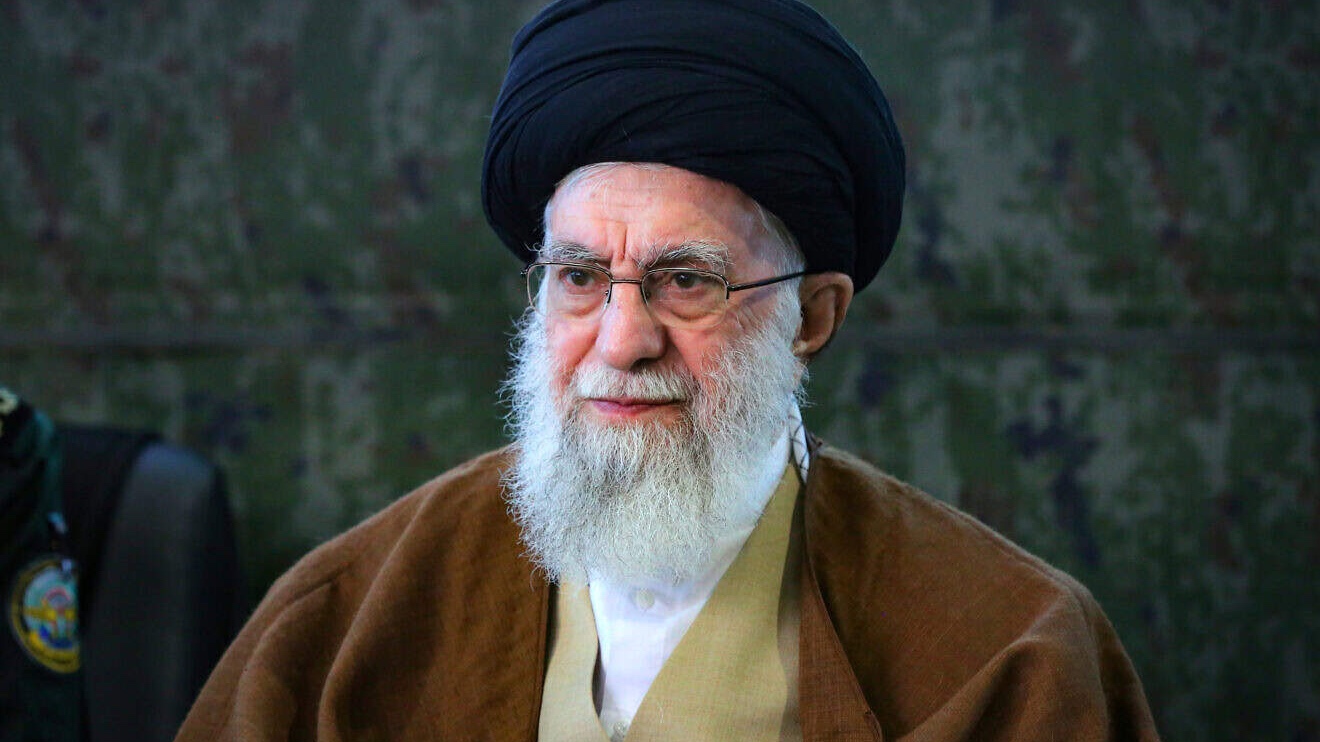A fierce debate is taking place in the upper floors of the Kirya and
the lower levels of the "Bunker." It concerns the possible existence of a
parallel Iranian directive, three words long: "The Doomsday Order." If
such an order exists, it would not deal with destroying Iranian
infrastructure but rather with issuing a "go" command to the entire Axis
of Resistance—Hezbollah, the Houthis, Hamas and the militias—to fire
everything they have.
If such an order exists, its meaning is no longer existential from
Israel's perspective: Hamas has been dismantled as an army, Hezbollah
has been cut down by 90%, and Syria no longer takes instructions from
Tehran. But it would still be a major headache for the military, a
serious challenge for Israel's defense systems and a prelude to a broad
military operation in Lebanon.
Supporters of this view argue this is the way of fundamentalists—they
do not know how to compromise and, from their perspective, will allow
the entire region to go up in flames. Opponents believe there is no
evidence for this and, in any case, question what exactly a button
pressed in Tehran would even activate.
But Israel's actions over the past week seem to be driven—perhaps as a
result of the lessons of October 7—by the assumption that it will
happen. That is the reason for the escalating attacks on Hezbollah
strongholds, with emphasis on its rocket array. It is also the reason
for the growing concern and attention devoted to the Houthi threat.
How quickly we have forgotten the nightly rush of millions to
shelters because of a single missile. The concern about the fanatics
from Yemen goes far beyond that nuisance, whose main damage so far has
been the prolonged destruction of the tourism industry. The Houthi army
includes nearly 1 million fighters, and its plans include raids into
Israeli territory. It is not an immediate threat, of course, and the
distance is great, but we have already learned that seemingly
far-fetched plans—in this case, an invasion via Jordan—cannot simply be
dismissed.
The Gadi–Naftali showdown
A major question has accompanied party leaders in recent months: Why
is Netanyahu insisting on passing a deeply unpopular draft law for a few
months at most? The answer, always delivered in a mysterious tone, is
"security matters." As far as is known, this concerns not only a
possible war with Iran but another front as well. Another invasion of
Gaza? A ground operation to renew the security zone in Lebanon? Perhaps
an attack on the Houthis? There is no shortage of possibilities.
Amid the chaos reigning in the opposition, it is easy to miss the
main struggle taking place these days. It is Bennett versus Eisenkot;
everyone else is background noise and distraction.
The math is simple: Yair Golan is boxed into the left; Liberman has a
glass ceiling; Lapid is still deep in his rebranding campaign. The
question of who leads the bloc lies between Bennett and Eisenkot. The
gap between them has narrowed recently and stood in polls last week at
7-9 seats—still significant, but less so.
In Bennett's party they always ask in polls, "How much Gadi?" and in
Yashar they immediately ask, "How much Naftali?" The reason is those 10
or so mandates—hundreds of thousands of voters—who for seven years have
given their vote to the main challenger to Netanyahu. Today they are
here, tomorrow elsewhere, without commitment or sentiment. Whoever
leads, even by one seat, will receive them all. Right now they are with
Bennett; a year ago they were with Benny Gantz. Where will they be on
Election Day?
The important news in the bloc, therefore, is the one never
officially announced: Gadi Eisenkot recently decided to run for prime
minister. That is why he did not rush to unite with Bennett even though
he was promised half the kingdom, literally. That is why Bennett pushed
so hard for a joint run in recent months until he temporarily gave up.
No negotiations have taken place between the sides for weeks, but they
will certainly resume under pressure from bloc voters and strategic
advisers, and the question is who will arrive there in the lead.
Eisenkot's strength lies in his exceptionally high favorability
ratings, his relative newness and his organic connection to the camp.
Bennett's strength lies in more than a year of leading in the polls,
experience as prime minister and the ability to draw votes from the
right. That is why he got tangled in Efrat with remarks about
partnership with Smotrich and not ruling out Ben-Gvir. It was an
unnecessary misstep that recalled the joke about the beggar who said
that if he were Rothschild, he would be richer than Rothschild because
he would continue begging. The attempt to gather a handful of votes from
beyond the Green Line could cost Bennett valuable mandates on the other
side.
Bitan's revenge
Knesset member No. 28 of Likud in the 1990s was one of the factors in
Netanyahu's 1999 defeat to Ehud Barak. Could MK David Bitan in the
2020s do something similar?
The defeat on the VAT issue inflicted on Netanyahu and Smotrich was
delivered by an eclectic coalition. It included socialist Knesset
members (of which Likud has many); the hostility of ministers Barkat and
Dichter toward the finance minister; Yuli Edelstein's revenge on his
party (probably soon to be former), which removed him from chairing the
Foreign Affairs and Defense Committee; and perhaps, though I may suspect
unfairly, an ethnic component—Mizrahi Likud MKs versus the Ashkenazi
faction of Religious Zionism.
The group was led by a very sharp and vengeful political mind: David
Bitan. A decade ago he was Netanyahu's all-powerful coalition chairman.
Years passed; his contemporaries became senior ministers, even those
younger than him. His indictment derailed his career, a black cat
crossed between him and the prime minister, and in the last primaries
the Prime Minister's Office nearly managed to push him off the list.
Surprisingly, despite his complex legal situation and health condition,
Bitan is strengthening. So much so that after the recent Likud
convention elections, the chairman's office is trying to invalidate the
results. Earlier he mobilized as chair of the Economics Committee
against Shlomo Karhi's communications reform. Suddenly, the man who led
the fight against opening the public broadcaster became the channels'
main supporter. From his office this week he managed the campaign to
topple Smotrich's initiative. Had he wished, he could already have
brought down the draft law and triggered early elections. But he did
not. It is therefore too early to eulogize Netanyahu's absolute control
over his faction. His regime in Likud is not dictatorial but
authoritarian: high control, but not absolute.
The ultra-Orthodox parties are watching developments in Likud with
concern, wondering whether they will go all the way only to suffer
defeat in the plenum. They are worried but have no choice. Their
overarching goal is to reach elections from the government table, with
the sword of sanctions removed, even temporarily, from the necks of
yeshiva students. It is still unclear how much time they have;
unusually, the Knesset has not yet set the date for the Passover recess.
A prisoner cannot free himself
Finally, a historic announcement by Agudat Yisrael in favor of
military enlistment: "After all demands to preserve religion in
functioning camps have been guaranteed—sanctity of the Sabbath, kosher
food and the creation of a religious atmosphere through special units
for ultra-Orthodox youth—the Central Committee of Agudat Yisrael calls
upon every individual to report for service to the nation, in light of
the increasingly grave dangers posed day by day by enemies who have
said, 'Come, let us destroy them.'"
How unfortunate that it is indeed historic—that is, from long ago, during the War of Independence.
The quote appears in Shmuel Rosner's new book, "On the Haredim,"
which addresses the question of relations between Israel and
ultra-Orthodox society. He does not place blame on the Haredim but on
the state. "In the decision to exempt Torah scholars from service, the
IDF effectively became the one recruiting young men to yeshivot, a
military police ensuring that Haredim remain in the study hall," he
observes.
He then wonders what would happen if the Amish community grew at
breakneck speed, entered politics and tried to impose rules on other
Americans—for example, removing all cars from the roads and transferring
the entire population to horse-drawn carriages.
The Haredim are not asking to remove cars from the roads on Shabbat,
but in practice that is happening more and more in growing
ultra-Orthodox enclaves.
What will the state look like when one-third of its citizens are
Haredi? And who will pay for the roads and public transportation? The
average non-Haredi Jew, the book claims, currently pays about 3,500
shekels a month to enable a nonworking Haredi Jew to live with dignity.
How much will that be in a few years?
The main argument against this statistic is that everywhere in the
world the rich fund the poor. The difference, Rosner explains, is that
only in Israel is poverty the result of choice—both of the Haredim and
of the legislator: "The state supports the poor knowing they will remain
in the cycle of poverty, not in order for them to exit it."
The past two years since the war have sharpened mainly the question
of military service, as the public and the IDF bang their heads against
the ultra-Orthodox wall trying to break it—so far without much success
and with growing concern of a concussion. But the main story, evident
between the lines, is the economy.
The Zionist hope is that after enlistment will come integration, and
after that education and employment. That is a false hope because
someone who arrives at age 25 with a wife and two children will struggle
greatly to complete the necessary education and find a job that will
raise them beyond check-to-check living.
The world is full of examples of countries that found themselves on
the brink before abolishing outdated arrangements. Margaret Thatcher
dismantled Britain's loss-making coal mines, creating a massive rupture
whose cultural echoes are still felt today, and Lyndon Johnson
dismantled racial segregation in America. By contrast, there has never
been a sector like the Haredim, whose political and demographic power is
growing rather than shrinking.
The polls granting the ultra-Orthodox parties 16 seats are a baseless
illusion in a world where every day there are 1,000 new ultra-Orthodox
voters for United Torah Judaism and another 500 for Shas.
There is a phrase in Israel: A prisoner cannot free himself from
prison. It may be that only the ultra-Orthodox prisoner can open this
cell, not the Zionist guard.



































